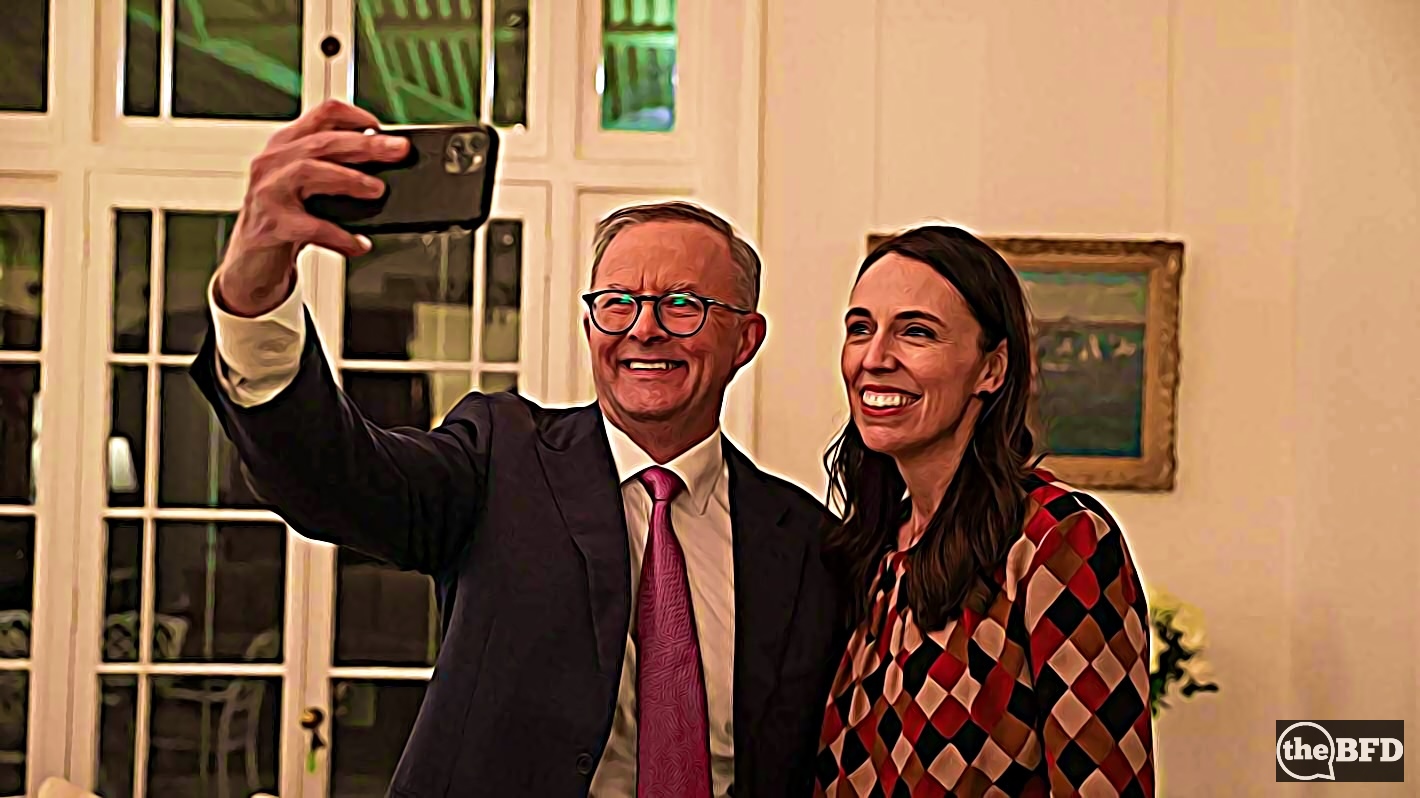Opinion
The parliamentary summer break surely couldn’t have come soon enough for Anthony Albanese. The last months of 2023 have been a constant bludgeon for the Australian PM. The discontent that simmered for most of the year over spiralling cost-of-living, driven largely by both “Net Zero” and a tsunami of record-high mass immigration, overboiled in the wake of the disastrous “Voice” referendum. Not to mention the government’s obvious reluctance to tackle exploding anti-Semitism, due to its reliance on the heavily Muslim Western suburbs of Sydney, and its desperation not to shed any more left-wing votes to the Greens.
On the other hand, the referendum gave the Coalition the chance to reassert its centre-right principles. Opposition leader Peter Dutton was firm and consistent in his rejection of a Constitutional amendment which the vast majority of Australians rightly judged racist. Dutton has been no less forthright and unwavering in his support for Israel and the Australian Jewish community.
The opposition leader is reaping the rewards of growing a spine.
Peter Dutton is now regarded by voters as a more experienced, stronger and more decisive leader than Anthony Albanese despite being less likeable and trusted, in findings that will set the scene for a clash of competing political personalities ahead of the next election.
An exclusive Newspoll conducted for The Australian shows Mr Dutton is the first opposition leader since Tony Abbott to outflank a prime minister on three of the key leadership attributes considered critical to the political contest.
The Australian
And, as we all know, Abbott took the Coalition from crushing defeat to a whisker of victory in just a single term. In the next, he became one of just a handful of Liberal leaders to win government from opposition.
As we head into 2024, incumbency, usually seen as a bonus, will surely prove to be an ever-weightier millstone around Albanese’s neck. Australians are in a grim mood, and they’re not going to be forgiving of a government they see as only making things worse.
Nearly 60 per cent of Australians believe the economy is either already in recession or will tip into one in 2024, a new survey has revealed just days after the government’s mid-year budget update projected the economy was heading towards a so-called “soft landing”.
The dismal mood among Australians comes despite unemployment below 4 per cent, but after recent national accounts showed a collapse in real spending and living standards through 2023 that has left many households frustrated and struggling to make ends meet.
As Anthony Albanese on Monday morning listed cost-of-living pressures as the first of his priorities now and into the new year, the Resolve poll for Dye & Durham’s Australian Market Pulse also found that half of households believe they are financially worse off than a year earlier.
The Australian
Too little, too late, many Australian voters will surely judge. After all, cost-of-living has been in crisis for over a year — yet, Albanese made his first priority a divisive, hated referendum.
Just as the 1970s introduced the then-new phenomenon of “stagflation”, the 2020s are ushering in an era where the government brags about budget surpluses while the economy collapses around voters’ ears. Unemployment may be low, but most of the jobs are being filled by the half-million low-wage migrants who’ve inundated the country in just the past 12 months.
Economists may swoon over the micro-“economic boost” of mass immigration, but in the suburbs, no-one can see it. All they can see is hours-long commutes on jammed highways, soaring house prices and rents, overcrowded schools and hospitals — and it all getting worse.
While living standards are clearly slipping, in many ways inflation is the government’s friend. In all likelihood, there will be a second budget surplus next year.
What the National Accounts clearly demonstrated is that the economy is flatlining, while GDP per capita continues to go backwards. Real household disposable income declined by 1.7 per cent over the September quarter, the fourth consecutive quarterly decline. Since its peak in the third quarter of 2021, real disposable income has fallen by over 8 per cent.
The principal reasons for this dismal outcome are: inflation, rising mortgage rates and a rising tax take. While inflation abated somewhat in the quarter, interest paid on mortgages rose by close to 8 per cent while income tax paid by households also rose by close to 8 per cent.
Tell me this isn’t a Labor government.
The insufficient growth in the economy, as well as the increase in the population due largely to immigration, has sealed this depressing result. It’s hardly surprising people are feeling grumpy, something that is being reflected in the surveys of consumer sentiment.
People are digging into their savings to staunch these negative influences. The recorded saving rate was a mere 1.1 per cent in the September quarter, the lowest rate since 2007. It had been 7 per cent last year. There is now very little left in the tank to provide further buffer for hard-pressed households.
The Australian
When the Reserve Bank keeps jacking up mortgage rates in response to the inflationary pressures entirely as a result of government policies, more and more households are going to find their noses jammed to the wall.
And all the while, the pinhead treasure keeps bragging about the money he’s just found down the back of the couch.
It’s not a mix guaranteed to endear the Albanese government to even the 32% of Australians who actually voted for them.

